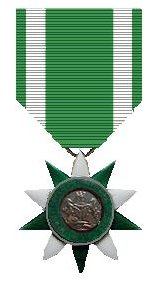Related Research Articles

The People's Democratic Party (PDP) is one of the two major contemporary political parties in Nigeria, along with its main rival, the All Progressives Congress (APC).

General elections were held in Nigeria on 21 April 2007 to elect the President and National Assembly. Governorship and State Assembly elections had been held on 14 April.

The Fourth Republic is the current republican government of Nigeria. Since 1999, it has governed the country according to the fourth republican constitution. Nigeria adopted the constitution of the Fourth Republic on 29 May 1999.
The following lists events that happened during 2000 in Nigeria.
See also: Timeline of Nigerian history
This article is about the particular significance of the year 2006 to Nigeria and its people. See also Timeline of Nigerian history
Colonel Bala Mohammed Mande is a former Military Administrator of Nasarawa State. He was later appointed Minister of Environment in the Cabinet of President Olusegun Obasanjo.
Kashim Ibrahim-Imam was born 8 May 1962, he is a Nigerian politician who was twice the People's Democratic Party (PDP) candidate for Governor of Borno State in 2003 and 2007, losing both times to the All Nigeria Peoples Party (ANPP) candidate Ali Modu Sheriff.

Lawali Shuaibu is a Nigerian politician who was elected senator for the Zamfara North Senatorial District of Zamfara State, Nigeria at the start of the Nigerian Fourth Republic, running on the All People's Party (APP) platform. He took office on 29 May 1999. He was re-elected on the All Nigeria People's Party (ANPP) platform in 2003 to a second term of four years.
Masʽud Doguwa El-Jibril was elected Senator for the Kano South constituency of Kano State, Nigeria at the start of the Nigerian Fourth Republic, running on the People's Democratic Party (PDP) platform. He took office on 29 May 1999. After taking his seat in the Senate in June 1999 he was appointed to committees on Industries, Foreign Affairs, Works & Housing, Agriculture (Chairman) and Information.
Umaru Bago Tafida III is the 12th Emir, Etsu, or traditional ruler of Lapai in Niger State, Nigeria appointed in July 2002. He succeeded Emir Alhaji Muhammadu Kobo, who died at the age of 92 after ruling for 48 years, and was appointed to the stool by the Niger State governor Abdulkadir Kure.
This article is about the particular significance of the year 2005 to Nigeria and its people.
This article is about the particular significance of the year 2008 to Nigeria and its people.

The Order of the Federal Republic (OFR) is one of two orders of merit, established by the Federal Republic of Nigeria in 1963. It is senior to the Order of the Niger.
The following lists events that happened during 2007 in Nigeria.
The following lists events that happened during 2015 in Nigeria.
Events in the year 2010 in Nigeria.
The 2003 Yobe State gubernatorial election occurred on April 19, 2003. ANPP candidate Bukar Ibrahim won the election, defeating PDP Adamu Waziri and 3 other candidates.
The 2003 Kogi State gubernatorial election occurred in Nigeria on April 19, 2003. The PDP nominee Ibrahim Idris won the election, defeating Abubakar Audu of the All Nigeria Peoples Party.
Events in the year 2001 in Nigeria
References
- ↑ "Igbinedion University | Academic Influence". Academic Influence. Retrieved September 9, 2023.
- ↑ "Adijat Adenike OLARINOYE". Commonwealth Games - Birmingham 2022. Retrieved 20 January 2023.